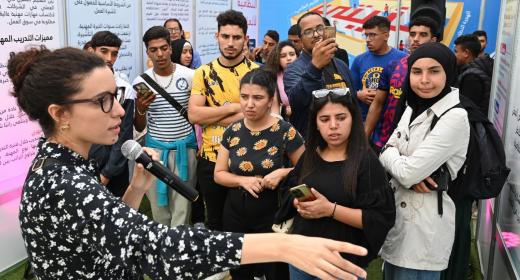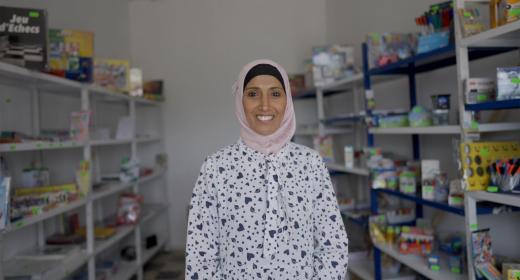Oussema often starts the day by visiting Sidi Mansour beach in Sfax, Tunisia. He enjoys the view of the sea, but at the same time it pains him. This is because his home city has become a hotspot for illegal migration. Many people seeking new opportunities in Europe use this as the staring point for their sea crossing. “They've no idea what awaits them there, and they know too little about the opportunities available to them here in Tunisia”, says Oussema. He’s an advisor in the German-Tunisian Centre for Jobs, Migration and Reintegration (CTA), and is doing his bit to help change that.
Oussema works in the CTA providing advice on matters like training, employment and starting a business, and speaks with those seeking advice to jointly find individual solutions. The advice centre in Sfax was opened in February 2020, following on from the centre which had already opened in the capital Tunis. The two centres are operated by the Deutsche Gesellschaft für Internationale Zusammenarbeit (GIZ) GmbH. They form part of the "Returning to New Opportunities" programme run by the German Federal Ministry for Economic Cooperation and Development (BMZ).




